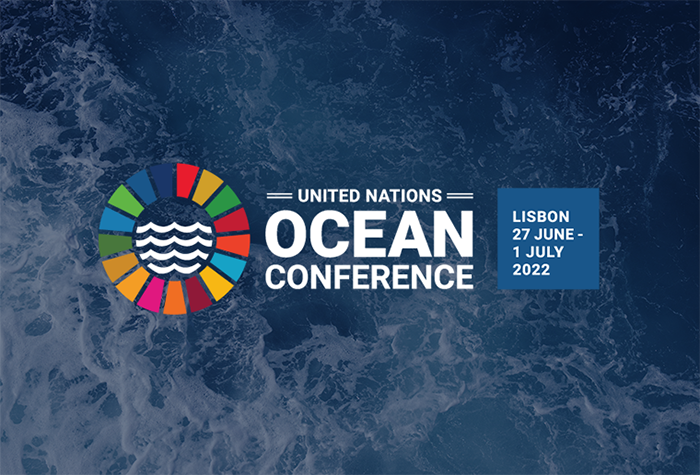Interviews / Ocean
11 July 2022
UN Ocean Conference in Lisbon: What Future for the Oceans?

From June 27 to July 1, the second UN Ocean Conference was held in Lisbon, Portugal, also known as UNOC for “UN Ocean Conference.” Feedback from Julia Tasse, a researcher at IRIS in charge of the Climate, Energy, and Security Program, on the key issues of this event.
Despite some media coverage, this conference received relatively little attention. In what context was it organized? By whom? What are the stakes and objectives?
Indeed, national political news dominated the debates in late June. However, the conference held in Lisbon was of crucial importance for the advancement of ocean knowledge and protection. It is essential to place this event in its context: it follows the first ocean conference, which took place in 2017 at the UN headquarters in New York, USA. The primary goal of this first conference was to bring the vast, vital space of the seas to the forefront of international discussions. It led to the publication of thousands of commitments from both private and public actors to better understand, protect, and more responsibly exploit the ocean. This second conference was a continuation, bringing together the same stakeholders: the maritime world, businesses, activists, researchers, politicians, and others.
Why the ocean? And why 2022?
For about ten years, UN member countries, particularly those involved in climate and biodiversity framework conventions, have become increasingly aware of the centrality of the ocean and its health for humanity: regulating a climate we are disrupting, food security, cultural and religious significance, etc. This conference provides an opportunity to dedicate an entire week to it. The second edition of this conference was originally scheduled for June 2020, but due to the COVID-19 pandemic, it was postponed multiple times. This made 2022 a crucial year, a potential turning point in our relationship with the sea: first with the One Ocean Summit, held in February in Brest; then the UN General Assembly resolution on ending plastic pollution (a binding agreement to be proposed in the coming years) in March; followed by the long-awaited (since 2001) agreement by World Trade Organization members to ban certain subsidies that encourage harmful fishing practices in June; and finally, with this conference, which will be followed by the conferences of the parties to the climate and biodiversity conventions (respectively in November and December 2022).
We are making progress, but the question of implementing the key principles outlined remains central. We will have the chance to closely follow this, as Costa Rica and France will host the next edition in Marseille in 2025.
What were the major announcements of this conference? The main topics?
The first day was marked by a speech from the UN Secretary-General, Antonio Guterres, who stated that there is an “oceanic urgency” and urged participants to take action. Subsequently, many topics were discussed, such as the decarbonization of maritime transport, the challenges of adapting coastal and island territories, and the protection of international waters and deep seabeds. The latter topic particularly sparked debates, as discussions are ongoing at the International Seabed Authority (ISA) regarding the adoption of a mining code (by July 2023). This code would effectively allow the exploitation of mineral resources from the deep seabeds (while currently only exploration is permitted, meaning the establishment of programs to estimate potential resources and their accessibility). While some countries showed unwavering support for a moratorium on the mining code, others promoted the idea of better understanding in order to better exploit. In this context, just days before the opening of the 27th session of the ISA (which begins on July 4, with the Assembly meeting in early August), President Emmanuel Macron’s speech emphasizing the need for “a legal framework to halt deep-sea mining” was a pivotal moment of the week.
What will be the French position at the 27th session of the ISA in late July and early August? What future lies ahead for our seabeds in the international zone? What direction will the energy transition take, given the increasing demand for minerals, at the cost of the fragile abyssal species? The coming months will be decisive, and the French position will be closely watched.


